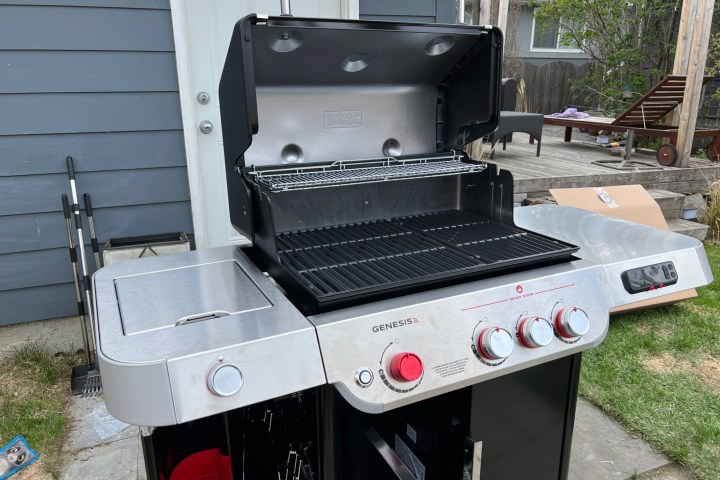When they launched, smart speakers made sense: The ability to talk to your speaker from across the room to ask for mundane tasks like volume adjustment is a good idea. Then everything started to get smart, but some smart products seemed like a dumb idea: smart toilets, smart water bottles, smart hair brushes. Now there are smart grills. But do we really need to add technology to the most basic of human acts: Cooking over fire?
What is a smart grill or smart BBQ?
Let’s kick this off by establishing the parameters: A smart grill is a dedicated grill or barbecue (or BBQ, for you acronym advocates) that also has technology built-in. The technology generally includes remote ambient (under the lid) grill temperature monitoring, use of a temperature probe to check the food’s internal temperature, and a companion app that lets you oversee your cook from across the yard or inside the house.
It’s true that there are remote devices (Weber iGrill 3), probes (Maverick iChef) and wireless thermometers (Meater) that can provide this kind of smarts to any grill on earth, the question we’re looking at is, is it worth it to have this technology built into the grill itself?
Is a smart grill worth it?

This season, BBQ giant Weber launched its Genesis series of smart grills. I reviewed the Weber Genesis Smart Grill, Model EX 325s recently and had the opportunity to spend several weeks cooking with one of these new grills and experience its built-in intelligence.
The Weber Genesis EX 325s is, in essence, a regular (albeit really, really nice and high-end) BBQ. Its smarts come in the form of a special built-in module that’s embedded in the front of the grill. The module has inputs for two wired probes that will keep constant watch over your food’s internal temperature, and the module connects wirelessly to the Weber Connect app. The app is your nerve center for all kinds of information, and not just about your food; it’s full of recipes and grilling tips, too.
How does a smart BBQ work?
Using the Weber Connect app you can choose a recipe to follow, insert the probe into your food, then plug the other end into the module. The display panel will show you some information, but the app is where it gets fun: You can see both the internal temperature of your food (or two different meats, if you’re using two probes) and the ambient temperature under the lid, so you’ll know if things are getting too hot or cool. The app will send push notifications to let you know when it’s time to flip your food over, and another notification when it’s ready to come off. A countdown timer inside the app is constantly making adjustments based on real-time temperatures and will give you an exact estimate of when your food is ready.
What’s the benefit of having smarts built-in?
Having this technology built into the BBQ creates a seamless, slick look to the grill. The built-in temperature sensing means that you also get that ambient reading inside the lid, which you won’t with an aftermarket probe.
But short of that, there are not really too many more advantages to this technology being built in. After enjoying my Weber Genesis EX 325s for several weeks, I was most impressed with the grill’s design, engineering, heating ability, and durability. It cooked food evenly, and it looks great in my backyard — far nicer than the cheap propane-powered grill I had for many years before. That it comes with smart technology is kind of a bonus, as far as I’m concerned; the cherry on an already delicious sundae.
Even so, these higher-end Weber models are pricey; the Genesis EX 325s model I tested rings in at around $1,479 (with smart module, extra storage and a special adaptive grill for the Weber Crafted line of BBQ cookware), and since you can spend as little as couple hundred bucks on a perfectly fine BBQ, there’s definitely a lot of factors to weigh. The Genesis without smart module and extras is closer to $999, by comparison.
To sum up: It’s probably not worth it to go out and buy a smart grill, since essentially the same technology is also out there elsewhere in third-party devices, and avoiding the smart model will have you spending a few hundred dollars less. But if you’ve got the money to spend and you’re in the market for a new BBQ, it might be worth the upgrade.



